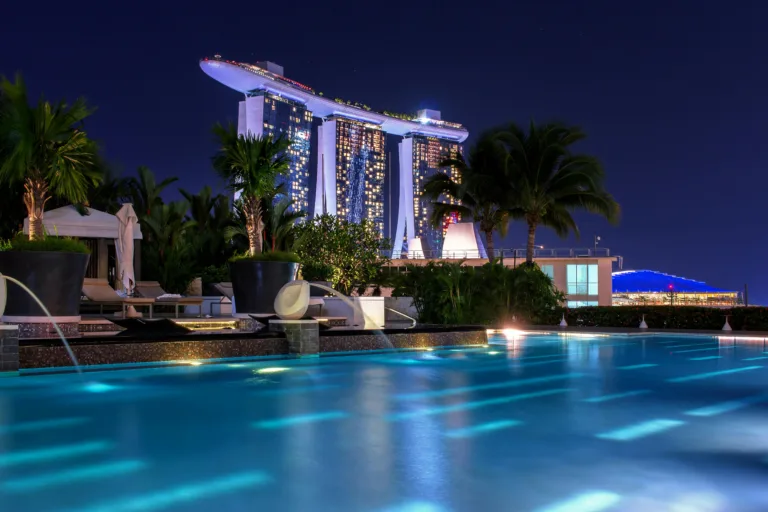10 countries with the most strict discipline and laws in the world are:
1.Singapore
2.North Korea
3.Saudi Arabia
4.Iran
5.China
6.United Arab Emirates
7.Brunei
8.Russia
9.Turkey
10.Vietanam
1.Singapore
Singapore is one of the countries with the most strict discipline and laws. This reputation is based on its stringent legal system, rigorous enforcement, and a societal emphasis on order and cleanliness.
Legal Framework
- Stringent Laws: Singapore has strict laws covering a wide range of activities. Offenses that might be considered minor in other countries, such as littering, chewing gum, and jaywalking, are taken very seriously and carry substantial fines or other penalties.
- Drug Laws: The country has some of the toughest anti-drug laws in the world. Possession of drugs can lead to severe penalties, including the death penalty for trafficking.
- Public Order: Laws governing public behavior are strictly enforced. Vandalism, for example, can result in caning, a form of corporal punishment. Public drunkenness and other forms of disorderly conduct are also penalized.
Enforcement
- Active Policing: The Singapore Police Force is known for its efficiency and proactive approach to law enforcement. This ensures that laws are not only in place but are also effectively implemented.
- Surveillance: Extensive use of surveillance cameras helps in maintaining public order and deterring crime. These measures contribute to the high levels of safety and security in the city-state.
Societal Norms
- Civic Responsibility: There is a strong cultural emphasis on civic responsibility and collective well-being. Citizens are encouraged to adhere to laws and regulations for the greater good of society.
- Public Campaigns: The government regularly conducts public education campaigns to promote good behavior and adherence to laws. Campaigns on issues like cleanliness, smoking, and public transport etiquette are common.
Education and Discipline
- Education System: Singapore’s education system emphasizes discipline and academic excellence from a young age. Schools enforce strict codes of conduct and academic performance standards.
- National Service: Mandatory national service for male citizens instills discipline and a sense of duty. This service typically involves two years of military training or other forms of national service.
Impact
- Safety and Cleanliness: The strict laws and disciplined society contribute to Singapore’s reputation as one of the safest and cleanest countries in the world. The city-state is often praised for its orderly streets, low crime rates, and efficient public services.
- Economic Prosperity: The stable and disciplined environment has been a key factor in Singapore’s economic success. It attracts foreign investment and tourism, contributing to its status as a global financial hub.
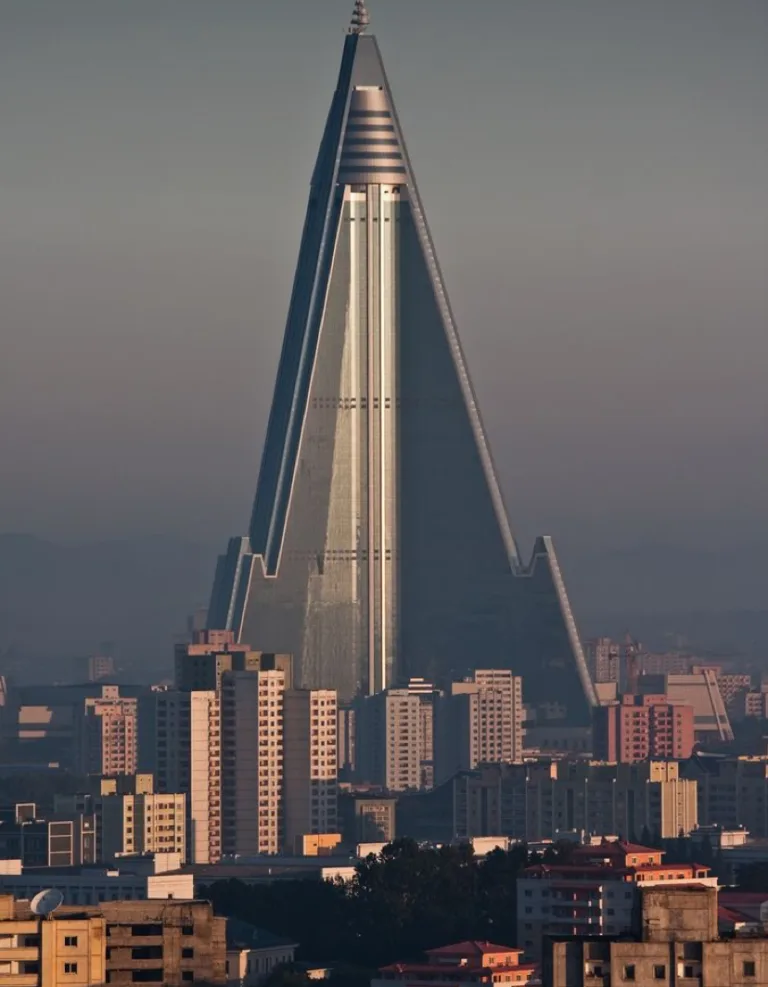
2.North Korea
North Korea is widely regarded as one of the countries with the strictest discipline and laws, characterized by an authoritarian regime that enforces severe control over many aspects of life.
Political Control
- Authoritarian Regime: North Korea is ruled by the Kim dynasty, with the current leader being Kim Jong-un. The regime maintains strict control over the political system, with no tolerance for opposition or dissent.
- One-Party State: The Workers’ Party of Korea is the only legal political party, and it exerts control over all aspects of government and society.
Social Control
- Surveillance: The state maintains extensive surveillance on its citizens, including monitoring phone calls, mail, and activities. The Ministry of State Security plays a significant role in this surveillance.
- Informant System: Citizens are encouraged, and often coerced, to report any suspicious behavior or dissent, creating an atmosphere of fear and mistrust.
Legal System
- Severe Penalties: North Korean laws impose severe penalties for a wide range of offenses. Punishments can include imprisonment, forced labor, and in some cases, public execution.
- Political Crimes: Crimes against the state, such as criticizing the government or trying to defect, are harshly punished. Even minor infractions can lead to severe consequences.
Control Over Information
- Restricted Media: All media in North Korea is state-controlled, and access to outside information is heavily restricted. Listening to foreign broadcasts or possessing foreign media can result in severe punishment.
- Propaganda: The government uses propaganda extensively to maintain control over public perception and promote loyalty to the regime.
Economic Control
- State-Controlled Economy: The economy is centrally planned and controlled by the government. Private enterprise is extremely limited, and most economic activities are state-run.
- Rationing System: Food and goods are distributed through a rationing system controlled by the state, which can be used as a means of control and punishment.
Education and Indoctrination
- Ideological Education: The education system focuses heavily on indoctrination, teaching loyalty to the Kim dynasty and adherence to the state ideology of Juche (self-reliance).
- Compulsory Military Service: All men are required to serve in the military, and women are also subject to military service for shorter periods. This service reinforces discipline and loyalty to the state.
Restricted Movement
- Limited Travel: Travel within the country is restricted, and citizens need permission to move from one region to another. International travel is virtually impossible for ordinary citizens.
- Border Control: The borders are heavily guarded, and attempting to leave the country without permission is considered a serious crime.
Impact on Society
- Fear and Compliance: The combination of surveillance, severe penalties, and ideological control creates an atmosphere of fear and enforced compliance among the population.
- Isolation: The strict control over information and movement results in a highly isolated society, with little contact with the outside world.
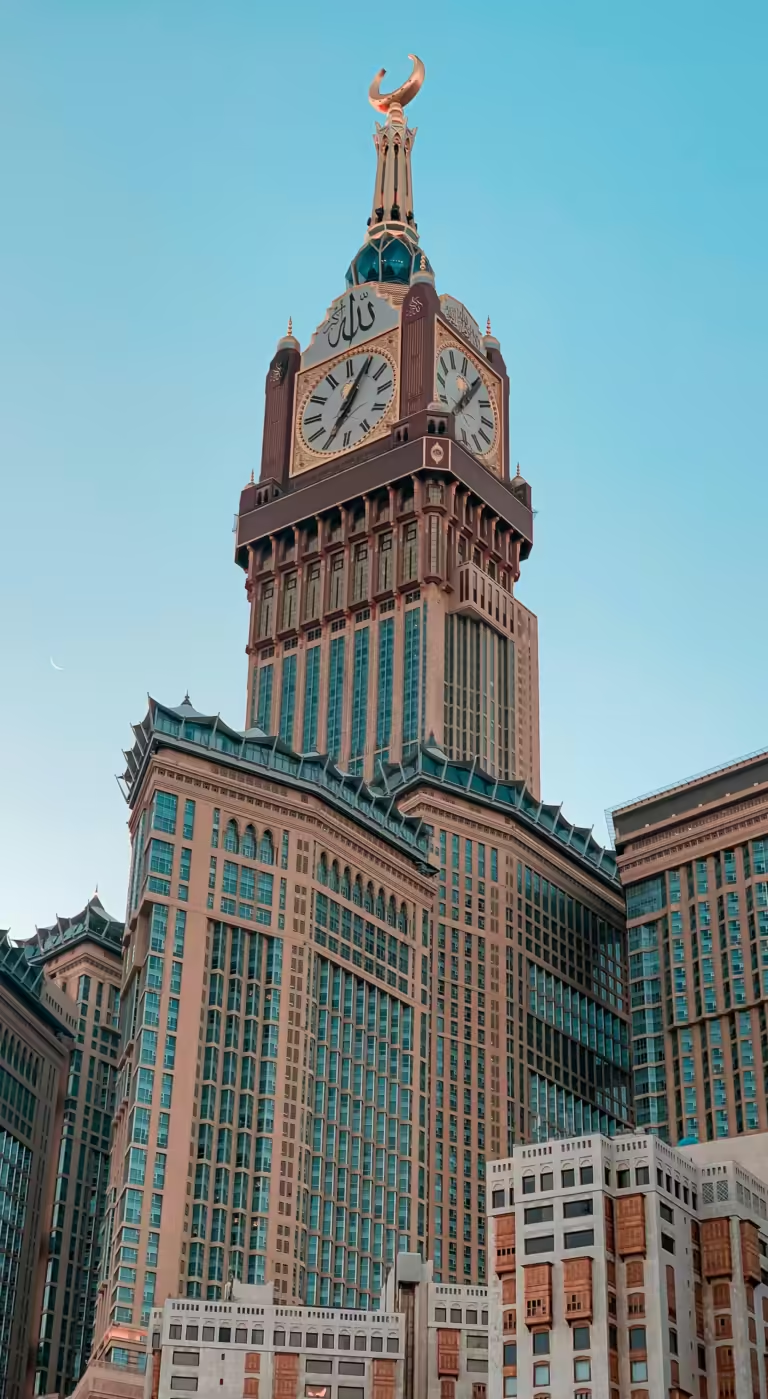
3.Saudi Arabia
Saudi Arabia is known for its strict discipline and laws, governed by a legal system based on Islamic principles, specifically Sharia law. The country’s legal and social framework enforces stringent regulations across various aspects of life.
Legal Framework
- Sharia Law: Saudi Arabia’s legal system is based on Sharia law, derived from the Quran and Hadith (sayings and actions of the Prophet Muhammad). This framework influences all aspects of legal and social norms in the country.
- Hudud Punishments: The legal system includes hudud punishments, which are fixed penalties for certain crimes such as theft, adultery, and apostasy. These can include amputation, flogging, and capital punishment.
Social Control
- Gender Segregation: Strict gender segregation is enforced in many public spaces, including schools, workplaces, and restaurants. The public interaction between unrelated men and women is heavily regulated.
- Dress Code: Saudi Arabia enforces a conservative dress code based on Islamic principles. Women are required to wear an abaya (a long black cloak) and, in some regions, a headscarf or niqab. Men are also expected to dress modestly.
Freedom of Expression
- Censorship: Freedom of expression is heavily restricted. Criticism of the government, royal family, or religious authorities can lead to severe penalties, including imprisonment.
- Media Control: The media is tightly controlled, with strict regulations on content that can be perceived as blasphemous, politically sensitive, or contrary to Islamic values.
Criminal Justice System
- Severe Penalties: The criminal justice system imposes severe penalties for a wide range of offenses. These can include public floggings, amputations, and executions, often carried out in public.
- Due Process: The legal process can be opaque, and defendants often have limited access to legal representation. Human rights organizations have raised concerns about the fairness of trials.
Restrictions on Women’s Rights
- Guardianship System: Women are subject to a guardianship system, requiring male guardian approval for many aspects of life, including travel, education, employment, and marriage.
- Driving: Until 2018, women were banned from driving. While this ban has been lifted, women still face significant legal and social restrictions.
Religious Practices
- Mandatory Prayer: There are five daily prayers in Islam, and businesses are required to close during these times to ensure everyone can perform their prayers.
- Religious Festivals: Public practice of any religion other than Islam is prohibited, and non-Islamic religious materials are restricted.
Public Decorum
- Alcohol and Drugs: The consumption, importation, and sale of alcohol and drugs are strictly prohibited and punishable by severe penalties, including imprisonment and flogging.
- Public Behavior: Public displays of affection and other behaviors considered immoral under Islamic law are strictly forbidden and can result in arrest and punishment.
Impact on Society
- Cultural Homogeneity: The strict enforcement of Islamic laws and norms contributes to a culturally homogeneous society where deviation from prescribed norms is minimal.
- Economic Reforms: Under Vision 2030, Saudi Arabia is undergoing economic and social reforms, aiming to diversify the economy and modernize some aspects of society. However, these reforms have not significantly altered the strict legal and social framework.
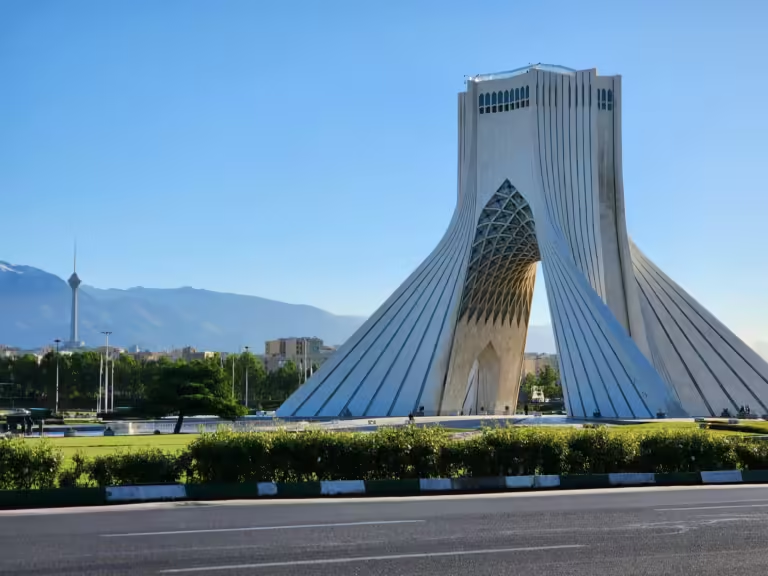
4.Iran
Legal Framework
- Sharia Law: Iran’s legal system is based on Sharia law, which is derived from the Quran and Hadith. This religious foundation impacts all legal and social norms in the country.
- Theocratic Government: Iran’s political system is a theocracy, with the Supreme Leader holding significant power over all branches of government, including the judiciary. The government enforces laws based on Islamic principles.
Social Control
- Gender Segregation and Dress Code: Strict gender segregation is enforced in many public spaces. Women are required to wear a hijab (headscarf) and loose-fitting clothing that covers the body. Men are also expected to dress modestly.
- Moral Policing: The Gasht-e Ershad, or morality police, enforce adherence to Islamic dress codes and behavior. They patrol public areas to ensure compliance with these norms.
Religious Observance
- Mandatory Prayer and Religious Practices: Public life in Iran is heavily influenced by Islamic practices. Certain religious observances, such as daily prayers and fasting during Ramadan, are widely observed and encouraged by the state.
- Public Holidays: The country’s calendar is dominated by Islamic holidays and events, and the public is expected to participate in religious ceremonies and observances.
Freedom of Expression
- Censorship: Freedom of expression is heavily restricted. Criticism of the government, the Supreme Leader, or religious authorities can lead to severe penalties, including imprisonment.
- Media Control: The media is tightly controlled, with strict regulations on content that can be perceived as blasphemous, politically sensitive, or contrary to Islamic values. Internet access is also restricted and monitored.
Criminal Justice System
- Severe Penalties: The criminal justice system imposes severe penalties for a wide range of offenses. These can include public floggings, amputations, and executions, often carried out in public.
- Political Crimes: Crimes against the state, such as dissent, protests, or attempts to change the political system, are harshly punished. Political prisoners often face severe conditions and treatment.
Restrictions on Women’s Rights
- Legal Inequality: Women in Iran face legal inequalities in areas such as marriage, divorce, inheritance, and custody. They often require permission from male guardians for various activities.
- Public Participation: While women participate in public life and hold professional positions, they face significant social and legal restrictions, including barriers to equal representation in politics and leadership roles.
Religious Minorities
- Persecution: Religious minorities, including Bahá’ís, Christians, and Jews, face persecution and discrimination. The practice of any religion other than Islam is restricted, and conversion from Islam is punishable by death.
- Legal Status: Religious minorities have limited legal protections and are often subject to harassment, imprisonment, and other forms of discrimination.
Public Decorum
- Alcohol and Drugs: The consumption, importation, and sale of alcohol and drugs are strictly prohibited and punishable by severe penalties, including imprisonment and flogging.
- Public Behavior: Public displays of affection, dancing, and other behaviors considered immoral under Islamic law are strictly forbidden and can result in arrest and punishment.
Impact on Society
- Social Control: The strict enforcement of Islamic laws and norms contributes to a society with high levels of conformity and limited public dissent. Fear of punishment ensures compliance with state-imposed norms.
- Economic and Social Reforms: While there have been attempts at economic and social reforms, the overall framework remains highly controlled by the religious and political establishment, limiting the extent and impact of these changes.
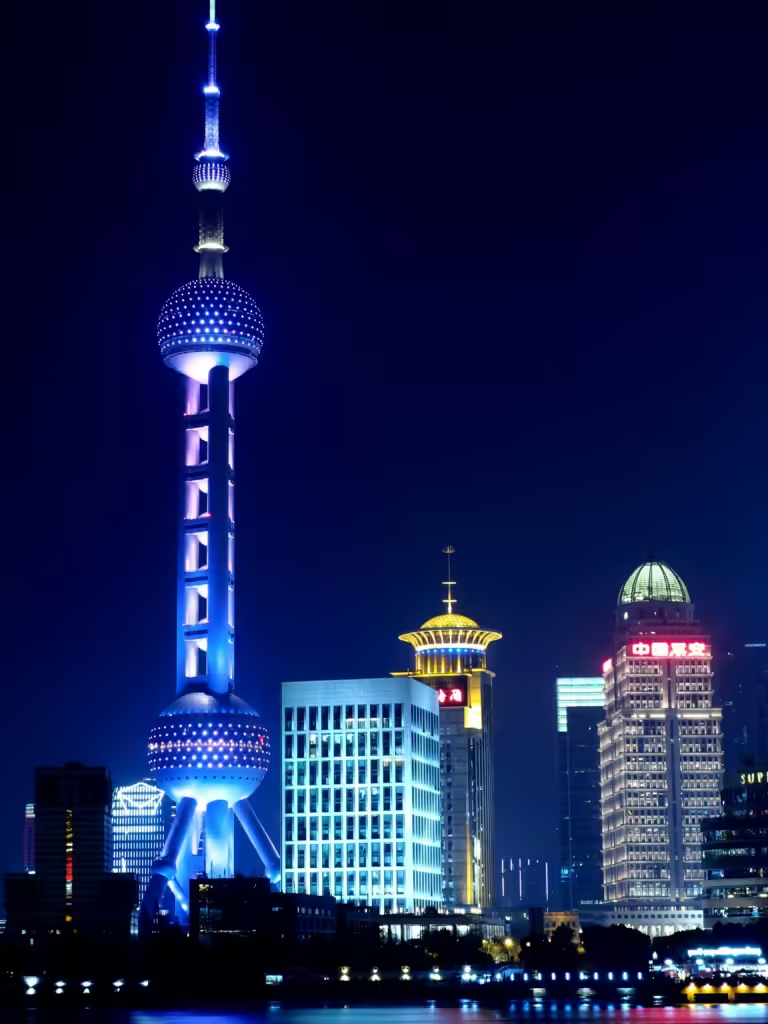
5.China
China is known for its strict discipline and laws, with the Chinese Communist Party (CCP) exerting significant control over many aspects of life. The legal and social framework enforces stringent regulations on political expression, social behavior, and public conduct.
Political Control
- Authoritarian Regime: The CCP holds a monopoly on political power. There is no tolerance for political dissent or opposition, and the party exerts control over all branches of government.
- Surveillance State: China has one of the most extensive surveillance systems in the world, with widespread use of cameras, facial recognition technology, and internet monitoring to track and control the population.
Legal System
- Severe Penalties: The legal system imposes harsh penalties for a range of offenses, including political crimes, corruption, and serious criminal activities. Penalties can include long prison sentences, forced labor, and the death penalty.
- Political Crimes: Activities deemed subversive to state authority, such as organizing protests, criticizing the government, or advocating for democratic reforms, are severely punished. High-profile dissidents and activists often face imprisonment.
Social Control
- Social Credit System: China is implementing a social credit system that scores citizens based on their behavior. Good behavior is rewarded, while bad behavior can result in penalties such as travel restrictions, limited access to services, and public shaming.
- Censorship and Propaganda: The government controls the media and censors information that contradicts state narratives. The Great Firewall restricts access to foreign websites, and social media platforms are monitored and censored.
Freedom of Expression
- Censorship: Freedom of expression is heavily restricted. Criticism of the government, the CCP, or state policies can lead to severe consequences, including arrest and imprisonment.
- Media Control: The government tightly controls all forms of media, including newspapers, television, and online content. Journalists and media outlets must adhere to state guidelines, and independent reporting is often suppressed.
Public Decorum
- Public Behavior: The government enforces laws that regulate public behavior, such as maintaining public order and hygiene. Offenses like littering, spitting, and jaywalking can result in fines and other penalties.
- Moral Conduct: There are regulations promoting traditional moral values, and behaviors deemed immoral or socially disruptive, such as gambling and drug use, are strictly punished.
Education and Indoctrination
- Patriotic Education: The education system emphasizes patriotic education and loyalty to the CCP. Curriculum content is tightly controlled to promote the party’s ideology and achievements.
- Control Over Academia: Academic freedom is limited, and research that contradicts state policies or ideology is often suppressed. Scholars and students are monitored, and dissenting voices are silenced.
Economic Control
- State-Owned Enterprises: The government maintains control over key sectors of the economy through state-owned enterprises (SOEs). Private businesses must align with state policies and interests.
- Regulation of Markets: The state regulates markets and business activities to ensure economic stability and political control. This includes interventions in financial markets, property rights, and foreign investment.
Human Rights Issues
- Arbitrary Detention: The government uses arbitrary detention as a tool to suppress dissent and control the population. This includes the use of “re-education through labor” camps.
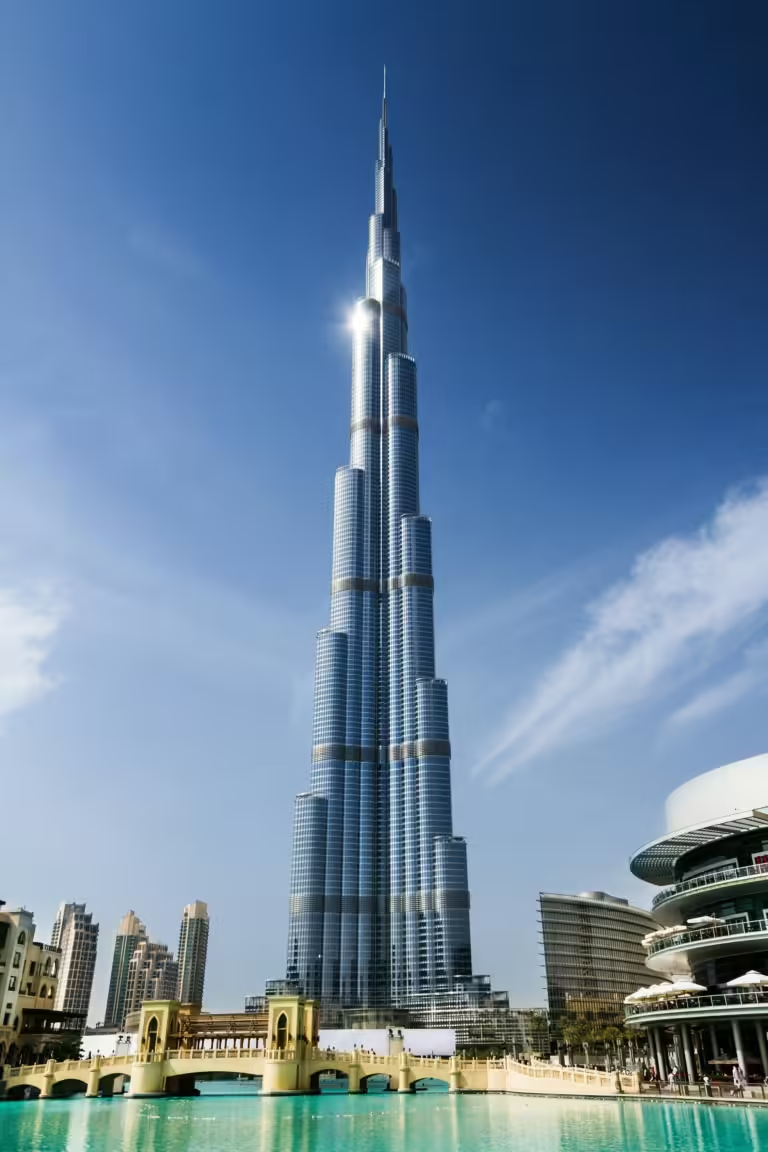
6.United Arab Emirates
The United Arab Emirates (UAE) is known for its strict discipline and laws, which are influenced by both Islamic principles and local customs. The legal and social framework in the UAE enforces stringent regulations on behavior, social norms, and public conduct.
Legal Framework
- Sharia Law and Civil Law: The UAE operates a dual legal system where Sharia law influences family law, personal status, and criminal law, while civil law governs commercial and business activities.
- Severe Penalties: The legal system imposes severe penalties for a wide range of offenses, including long prison sentences, fines, deportation, and in some cases, corporal punishment.
Social Control
- Public Behavior: There are strict laws regulating public behavior. Acts such as public displays of affection, swearing, and making rude gestures are illegal and can lead to arrest and fines.
- Dress Code: While there is some flexibility for expatriates, residents and visitors are expected to dress modestly, especially in public places. Women are advised to cover their shoulders and knees, and men should avoid wearing sleeveless shirts.
Alcohol and Drugs
- Regulated Alcohol Consumption: Alcohol consumption is regulated and permitted only in licensed venues such as hotels, clubs, and bars. Public intoxication and drinking outside designated areas are illegal and punishable by law.
- Zero Tolerance for Drugs: The UAE has a zero-tolerance policy for drug possession and trafficking. Even the smallest amounts of illegal drugs can result in severe penalties, including lengthy prison sentences and deportation.
Freedom of Expression
- Censorship: Freedom of expression is restricted, with strict censorship of the media and internet. Criticism of the government, royal family, or religion can lead to severe consequences, including imprisonment and fines.
- Media Control: The government tightly controls the media, and content that contradicts state policies or social norms is censored. There are also restrictions on what can be published and broadcasted.
Religious Practices
- Islamic Practices: The UAE is a Muslim-majority country, and Islamic practices and observances are strongly promoted. Non-Muslims are free to practice their religion, but proselytizing and distributing religious literature are prohibited.
- Respect for Ramadan: During the holy month of Ramadan, eating, drinking, and smoking in public during daylight hours are prohibited for everyone, including non-Muslims. Violating this can result in fines and other penalties.
Criminal Justice System
- Strict Enforcement: The UAE has a reputation for strict law enforcement. The police and judiciary enforce laws rigorously, ensuring high levels of compliance and low crime rates.
- Fair Trials: While the legal system aims to provide fair trials, there are concerns about due process and the treatment of detainees, particularly those accused of political crimes or offenses against the state.
Women’s Rights
- Legal Protections: Women in the UAE have legal protections and are able to participate in the workforce, education, and public life. However, certain laws and social norms still impose restrictions based on traditional gender roles.
- Family Law: Family law, governed by Sharia principles, can affect women’s rights in matters of marriage, divorce, and child custody, often favoring male guardianship.
Cybercrime and Online Conduct
- Cybercrime Laws: The UAE has strict cybercrime laws that regulate online behavior. Posting content deemed offensive, defamatory, or contrary to public morals can result in imprisonment and fines.
- Social Media Usage: Residents and visitors must exercise caution when using social media, as sharing or liking content that criticizes the government or insults religion can lead to legal action.
Economic Regulations
- Business Environment: The UAE has strict regulations governing business practices to maintain a stable and attractive environment for investment. Compliance with local laws and regulations is mandatory for all businesses.
- Labor Laws: There are strict labor laws that aim to protect both employers and employees. However, there are concerns about the treatment of migrant workers, who make up a significant portion of the workforce.
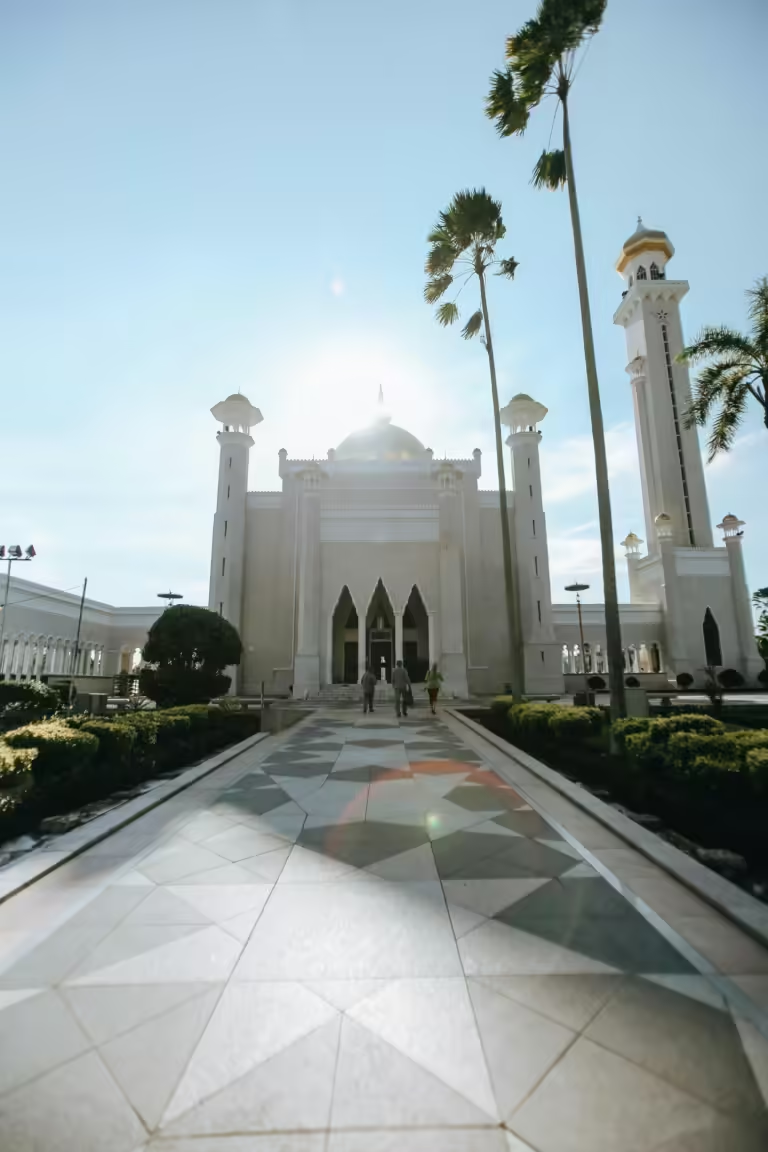
7.Brunei
Brunei, a small nation on the island of Borneo, is known for its strict discipline and laws, which are heavily influenced by Islamic principles and the absolute monarchy of the Sultan. The legal and social framework enforces stringent regulations on various aspects of life, particularly regarding religious observance, social behavior, and public conduct.
Legal Framework
- Sharia Law: In 2014, Brunei implemented a Sharia Penal Code in phases, which applies to both Muslims and non-Muslims for certain offenses. This legal framework includes severe punishments such as amputation for theft and stoning for adultery and homosexuality.
- Monarchy Rule: Brunei is an absolute monarchy, with Sultan Hassanal Bolkiah holding significant power over all branches of government. The Sultan has the authority to make and enforce laws.
Social Control
- Public Behavior: There are strict laws regulating public behavior. Acts such as public displays of affection, drinking alcohol in public, and indecent behavior are illegal and can lead to fines, imprisonment, or corporal punishment.
- Dress Code: While there is some flexibility for expatriates, residents and visitors are expected to dress modestly, especially in public places and during religious events. Women are advised to cover their shoulders and knees, and men should avoid wearing sleeveless shirts.
Alcohol and Drugs
- Prohibition of Alcohol: The sale and public consumption of alcohol are prohibited in Brunei. Non-Muslim residents and visitors are allowed to bring a limited amount of alcohol into the country for private consumption, but strict regulations apply.
- Zero Tolerance for Drugs: Brunei has a zero-tolerance policy for drug possession and trafficking. Even small amounts of illegal drugs can result in severe penalties, including the death penalty.
Freedom of Expression
- Censorship: Freedom of expression is heavily restricted. Criticism of the Sultan, the royal family, or the government can lead to severe consequences, including imprisonment and fines.
- Media Control: The government tightly controls the media, and content that contradicts state policies or social norms is censored. There are also restrictions on what can be published and broadcasted.
Religious Practices
- Islamic Practices: Brunei is a Muslim-majority country, and Islamic practices and observances are strongly promoted. Non-Muslims are free to practice their religion, but proselytizing and distributing religious literature are prohibited.
- Respect for Islamic Norms: During the holy month of Ramadan, eating, drinking, and smoking in public during daylight hours are prohibited for everyone, including non-Muslims. Violating this can result in fines and other penalties.
Criminal Justice System
- Strict Enforcement: Brunei has a reputation for strict law enforcement. The police and judiciary enforce laws rigorously, ensuring high levels of compliance and low crime rates.
- Corporal and Capital Punishment: The legal system includes corporal punishment such as caning for certain offenses and capital punishment for serious crimes, including drug trafficking and murder.
Women’s Rights
- Legal Protections: Women in Brunei have legal protections and are able to participate in the workforce, education, and public life. However, certain laws and social norms still impose restrictions based on traditional gender roles.
- Family Law: Family law, governed by Sharia principles, affects women’s rights in matters of marriage, divorce, and child custody, often favoring male guardianship.
Cybercrime and Online Conduct
- Cybercrime Laws: Brunei has strict cybercrime laws that regulate online behavior. Posting content deemed offensive, defamatory, or contrary to public morals can result in imprisonment and fines.
- Social Media Usage: Residents and visitors must exercise caution when using social media, as sharing or liking content that criticizes the government or insults religion can lead to legal action.
Economic Regulations
- Business Environment: Brunei has regulations governing business practices to maintain economic stability. Compliance with local laws and regulations is mandatory for all businesses.
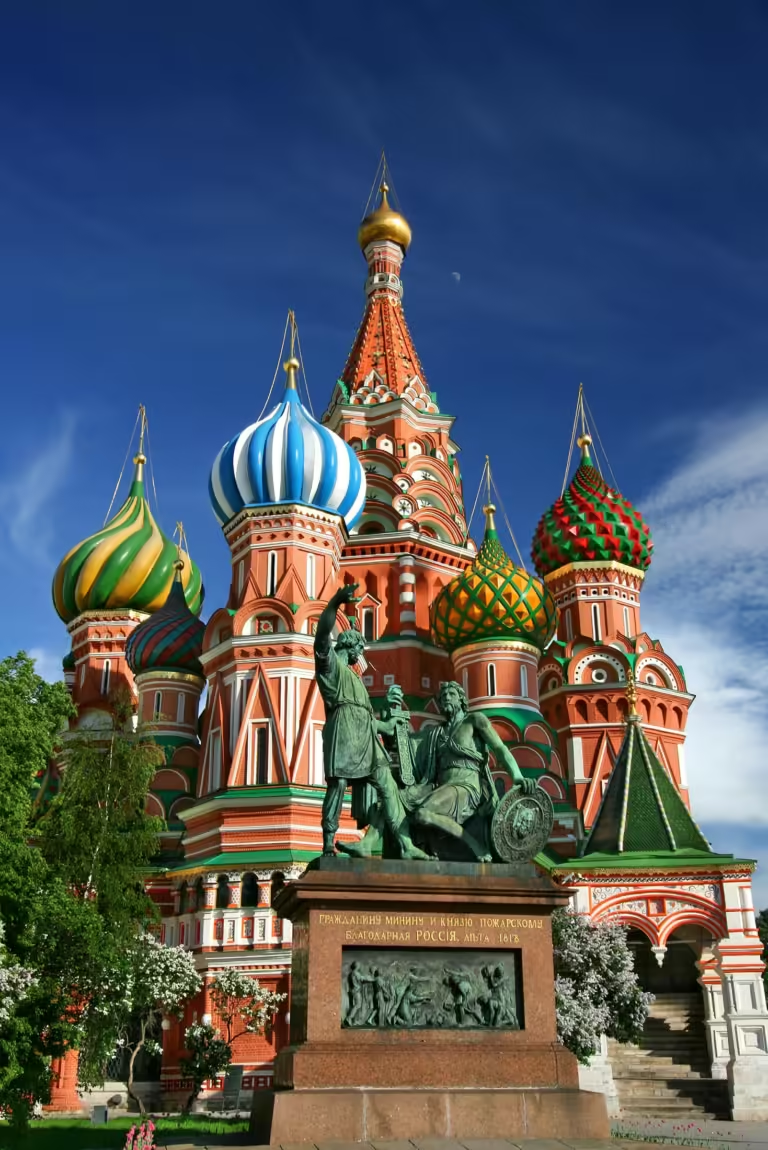
8.Russia
Russia is known for its strict discipline and laws, particularly under the governance of President Vladimir Putin. The legal and social framework enforces stringent regulations on political expression, social behavior, and public conduct.
Political Control
- Authoritarian Governance: Russia’s political system under Vladimir Putin has been characterized by authoritarian practices. The government exercises significant control over political processes, including elections, which are often criticized for lacking transparency and fairness.
- Suppression of Dissent: Political dissent is not tolerated. Opposition leaders, activists, and critics of the government often face harassment, imprisonment, or exile.
Legal System
- Strict Penalties: The legal system imposes severe penalties for a range of offenses, including political crimes, corruption, and serious criminal activities. Long prison sentences, heavy fines, and harsh prison conditions are common.
- Political Crimes: Activities deemed subversive to state authority, such as organizing protests, criticizing the government, or advocating for democratic reforms, are harshly punished. Political prisoners often face severe conditions.
Social Control
- Surveillance and Monitoring: The Russian government uses extensive surveillance and monitoring of its citizens. Security services like the FSB (Federal Security Service) keep a close watch on individuals and organizations deemed a threat to national security.
- Control of Public Spaces: Public protests and gatherings are heavily regulated. Unauthorized protests can lead to arrests and violence against demonstrators. Laws require prior approval for public demonstrations.
Freedom of Expression
- Media Control: The government exerts tight control over the media. Independent journalism is stifled, and state-owned or state-aligned media dominate the landscape. Journalists critical of the government often face harassment, violence, or even murder.
- Censorship: Freedom of expression is heavily restricted. Criticism of the government, the military, or religion can lead to severe consequences, including imprisonment. Laws against “fake news” and “extremism” are used to suppress dissenting voices.
Religious Practices
- State Control of Religion: While the Russian Constitution guarantees freedom of religion, the government maintains control over religious practices, particularly those of non-Orthodox Christian denominations. The Russian Orthodox Church enjoys special status.
- Persecution of Religious Minorities: Certain religious groups, such as Jehovah’s Witnesses, face persecution and legal restrictions. The government views these groups as threats to social order and national security.
Public Decorum
- Public Behavior: There are laws regulating public behavior, including restrictions on speech and actions deemed offensive or disrespectful. Public drunkenness, swearing, and certain behaviors in public can lead to fines and detention.
- Morality Laws: There are strict laws promoting traditional moral values. The “gay propaganda” law, for example, prohibits the dissemination of information about LGBTQ+ relationships to minors, effectively suppressing LGBTQ+ activism.
Criminal Justice System
- Harsh Punishments: The criminal justice system is known for its harsh punishments, including long prison sentences and severe prison conditions. Human rights organizations frequently report on the mistreatment of prisoners and lack of fair trials.
- Corruption and Abuse of Power: The legal system is plagued by corruption and abuse of power. Law enforcement and judicial decisions often favor those with political connections, leading to a lack of trust in the justice system.
Cybercrime and Online Conduct
- Cybercrime Laws: Russia has strict cybercrime laws that regulate online behavior. Posting content deemed offensive, defamatory, or contrary to public morals can result in imprisonment and fines.
- Internet Control: The government monitors and controls internet use, with laws requiring internet service providers to store user data and provide it to security services upon request. Websites and social media platforms can be blocked for hosting content deemed illegal.
Economic Regulations
- State Control of Key Sectors: The government maintains control over key sectors of the economy, such as energy and defense. Private businesses must align with state policies and interests.
- Labor Laws: There are strict labor laws aimed at protecting workers, but enforcement can be inconsistent, and workers’ rights are sometimes compromised by political and economic pressures.
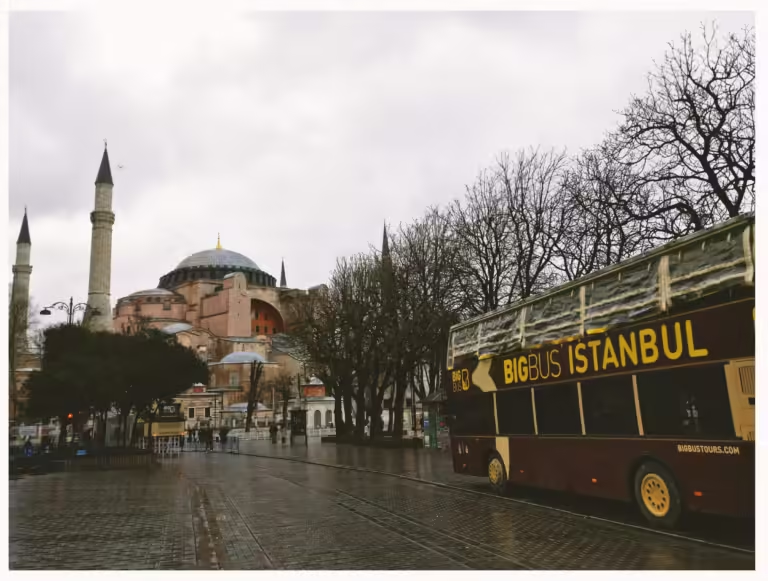
9.Turkey
Turkey is known for its strict discipline and laws, especially under the leadership of President Recep Tayyip Erdoğan and his Justice and Development Party (AKP). The country has a complex legal and social framework that enforces stringent regulations on political expression, social behavior, and public conduct.
Political Control
- Authoritarian Governance: Under President Erdoğan, Turkey has increasingly shifted towards an authoritarian style of governance. The government exerts significant control over political processes, including elections, which are often criticized for lacking transparency and fairness.
- Suppression of Dissent: Political dissent is not well-tolerated. Opposition leaders, activists, journalists, and critics of the government often face harassment, imprisonment, or exile.
Legal System
- Emergency Decrees and Laws: Following the 2016 coup attempt, the government declared a state of emergency, during which it enacted numerous emergency decrees that curtailed civil liberties and expanded executive powers. Although the state of emergency has formally ended, many of these laws and practices continue to affect the legal landscape.
- Anti-Terrorism Laws: Turkey’s broad anti-terrorism laws are used to prosecute individuals accused of supporting terrorist organizations, which often include political opponents, activists, and journalists. These laws are criticized for being overly broad and vague, leading to their use against a wide range of government critics.
Social Control
- Public Behavior: There are strict laws regulating public behavior. Acts such as public displays of affection, drinking alcohol in certain public places, and behaviors deemed disrespectful can lead to fines and imprisonment.
- Dress Code and Moral Conduct: While there is significant diversity in dress and behavior, public morality laws can be enforced arbitrarily. There are expectations of modesty, particularly in conservative areas and during religious events.
Freedom of Expression
- Media Control: The government exerts tight control over the media. Independent journalism is stifled, and state-aligned media dominate the landscape. Journalists critical of the government often face harassment, violence, or imprisonment.
- Censorship: Freedom of expression is heavily restricted. Criticism of the government, the military, or religion can lead to severe consequences, including imprisonment. Social media is also monitored, and individuals can be prosecuted for posts deemed offensive or subversive.
Religious Practices
- State and Religion: Although Turkey is officially a secular state, Islamic practices and observances are strongly promoted under the AKP government. Non-Muslims are free to practice their religion, but proselytizing and distributing religious literature can lead to legal issues.
Criminal Justice System
- Harsh Punishments: The criminal justice system is known for its harsh punishments, including long prison sentences and severe prison conditions. Human rights organizations frequently report on the mistreatment of prisoners and lack of fair trials.
- Corruption and Abuse of Power: The legal system is plagued by corruption and abuse of power. Law enforcement and judicial decisions often favor those with political connections, leading to a lack of trust in the justice system.
Cybercrime and Online Conduct
- Cybercrime Laws: Turkey has strict cybercrime laws that regulate online behavior. Posting content deemed offensive, defamatory, or contrary to public morals can result in imprisonment and fines.
- Internet Control: The government monitors and controls internet use, with laws requiring internet service providers to store user data and provide it to security services upon request. Websites and social media platforms can be blocked for hosting content deemed illegal.
Economic Regulations
- State Control of Key Sectors: The government maintains control over key sectors of the economy, such as energy and defense. Private businesses must align with state policies and interests.
- Labor Laws: There are strict labor laws aimed at protecting workers, but enforcement can be inconsistent, and workers’ rights are sometimes compromised by political and economic pressures.
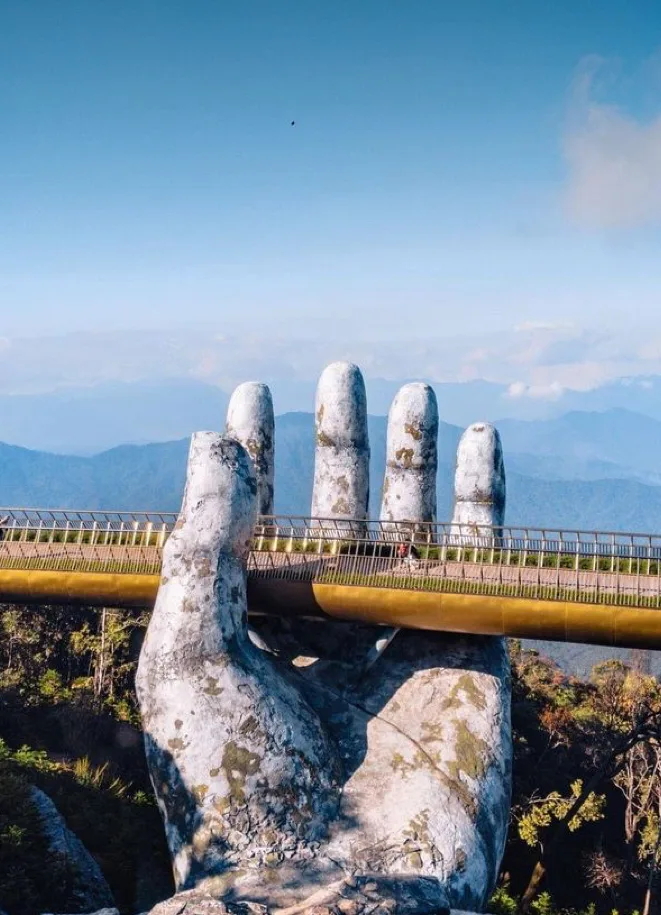
10.Vietnam
Vietnam is known for its strict discipline and laws, particularly under the governance of the Communist Party of Vietnam (CPV). The country has a comprehensive legal and social framework that enforces stringent regulations on political expression, social behavior, and public conduct.
Political Control
- One-Party State: Vietnam is a one-party state controlled by the Communist Party of Vietnam. Political opposition is not tolerated, and any efforts to form opposition parties or political movements are suppressed.
- Suppression of Dissent: Political dissent is not tolerated. Dissidents, activists, and critics of the government often face harassment, imprisonment, or exile. The government uses laws against “propaganda against the state” to target and imprison dissidents.
Legal System
- Broad and Vague Laws: Vietnam’s legal system includes broad and vague laws that can be used to target a wide range of activities deemed threatening to the state. This includes laws against “abusing democratic freedoms” and “subversion.”
- Strict Penalties: The legal system imposes severe penalties for a range of offenses, including political crimes, corruption, and serious criminal activities. Long prison sentences, heavy fines, and harsh prison conditions are common.
Social Control
- Public Behavior: There are strict laws regulating public behavior. Acts such as public protests, organizing unapproved events, and distributing leaflets without government permission are illegal and can lead to fines and imprisonment.
- Dress Code and Moral Conduct: While there is some flexibility, particularly in urban areas, public morality laws can be enforced arbitrarily. There are expectations of modesty, particularly in rural areas and during religious or cultural events.
Freedom of Expression
- Media Control: The government exerts tight control over the media. Independent journalism is stifled, and state-owned or state-aligned media dominate the landscape. Journalists critical of the government often face harassment, violence, or imprisonment.
- Censorship: Freedom of expression is heavily restricted. Criticism of the government, the military, or the Communist Party can lead to severe consequences, including imprisonment. Social media is also monitored, and individuals can be prosecuted for posts deemed offensive or subversive.
Religious Practices
- State Control of Religion: Although freedom of religion is guaranteed by the constitution, the government maintains control over religious practices. Religious groups must register with the government and operate under state supervision.
- Persecution of Unregistered Groups: Religious groups that do not register with the government or that are deemed to be operating outside state control face persecution, including harassment, detention, and property confiscation.
Criminal Justice System
- Harsh Punishments: The criminal justice system is known for its harsh punishments, including long prison sentences and severe prison conditions. Human rights organizations frequently report on the mistreatment of prisoners and lack of fair trials.
- Corruption and Abuse of Power: The legal system is plagued by corruption and abuse of power. Law enforcement and judicial decisions often favor those with political connections, leading to a lack of trust in the justice system.
Cybercrime and Online Conduct
- Cybercrime Laws: Vietnam has strict cybercrime laws that regulate online behavior. Posting content deemed offensive, defamatory, or contrary to public morals can result in imprisonment and fines.
- Internet Control: The government monitors and controls internet use, with laws requiring internet service providers to store user data and provide it to security services upon request. Websites and social media platforms can be blocked for hosting content deemed illegal.
Economic Regulations
- State Control of Key Sectors: The government maintains control over key sectors of the economy, such as energy and telecommunications. Private businesses must align with state policies and interests.
- Labor Laws: There are strict labor laws aimed at protecting workers, but enforcement can be inconsistent, and workers’ rights are sometimes compromised by political and economic pressures.
Public Decorum
- Public Morality Laws: Public decency laws are strictly enforced. Behaviors deemed inappropriate or offensive, such as public drunkenness or lewd acts, can result in fines or imprisonment.
- Social Conduct: Traditional values are emphasized, and there are expectations of respectful behavior, particularly towards elders and authorities. Violations of these norms can lead to social and legal consequences.

